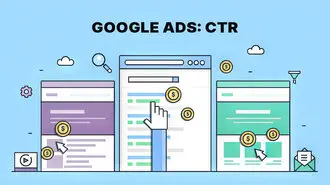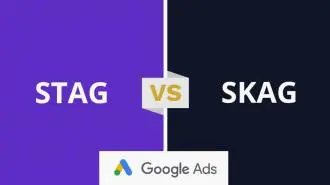Summary / TL;DR
Ad relevance in Google Ads measures how closely an ad matches a user's search intent and plays a vital role in campaign performance. It is one of three components used to determine an ad’s quality score, alongside landing page experience and expected click-through rate. Higher ad relevance improves quality score, which boosts ad rank, reduces cost-per-click, and increases return on investment. Google grades ad relevance as above average, average, or below average, depending on keyword alignment with ad copy. Improving relevance involves refining keyword strategies, creating specific ad groups, enhancing landing pages, crafting concise ad copy, and conducting A/B testing. Regular monitoring via Google’s dashboard tools helps maintain effectiveness.
Regarding best practices for digital marketing, paid search campaigns are considered one of the most reliable strategies.
With it, marketers can create paid advertisements that help increase a brand’s reach and visibility in the digital space. However, many business owners believe paying for advertisements can improve their business performance and growth.
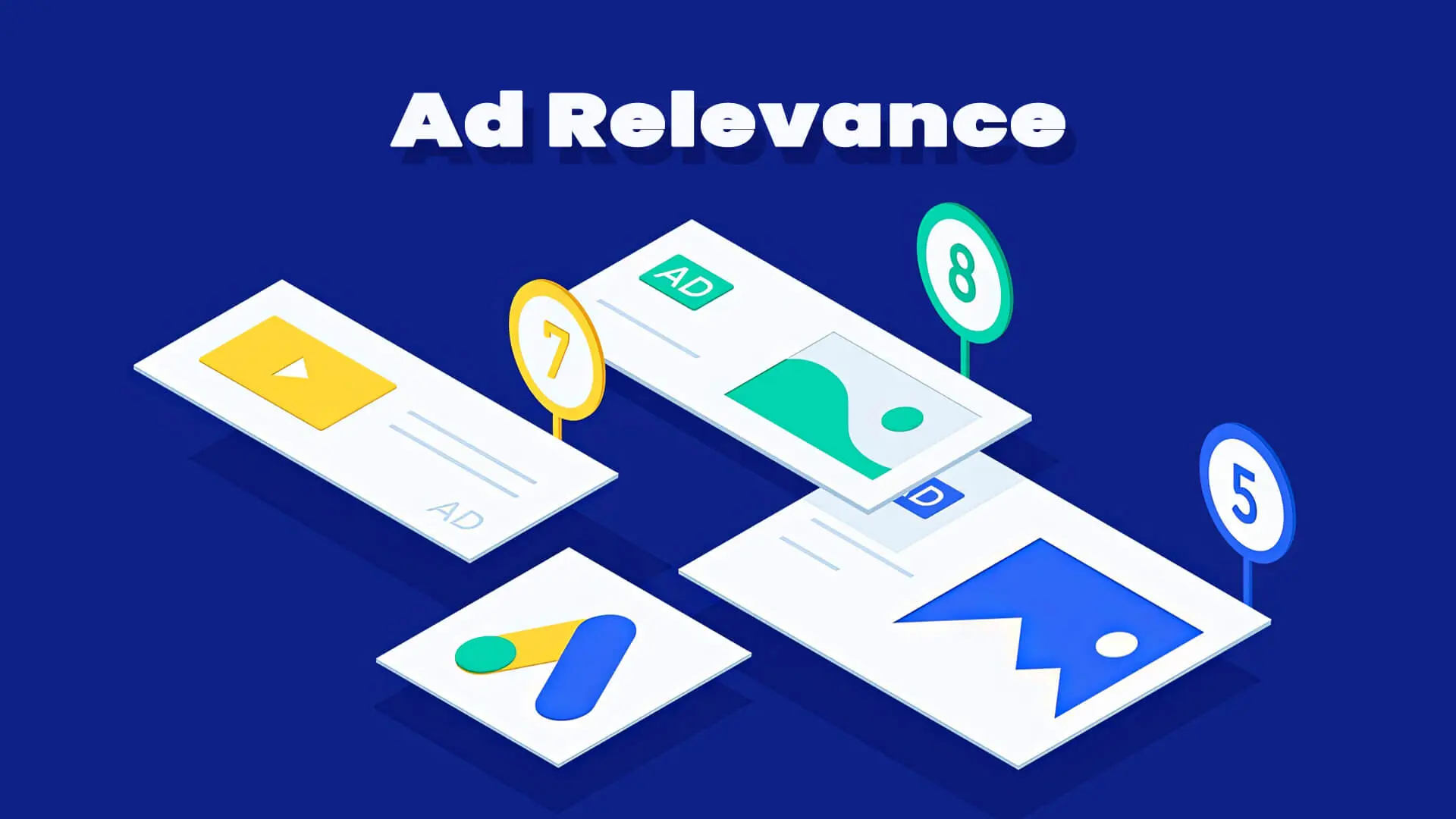
That is different, for there is a lot of competition in paid ads on search platforms like Google. To stand out from the crowd, you need to increase the relevance of your Google Ads.
But what exactly does Google Ads ad relevance mean? Well, that is what we have discussed in this guide. So, keep reading if you wish to get the most out of your paid ads!
Want to receive updates? Sign up to our newsletter
Each time a new blog is posted, you’ll receive a notification, it’s really that simple.
Understanding Ad Relevance In Google Ads
As we have mentioned before, ad relevance is an important metric that can affect the success rate of your Google Ads campaign. It is a component that measures how closely the ad matches a searcher’s intent.
In other words, when a user searches for something on Google, the ad relevance verifies if the ad’s content aligns with the user’s search terms. If there is higher ad relevance, it is displayed in their search results, or it will be omitted.
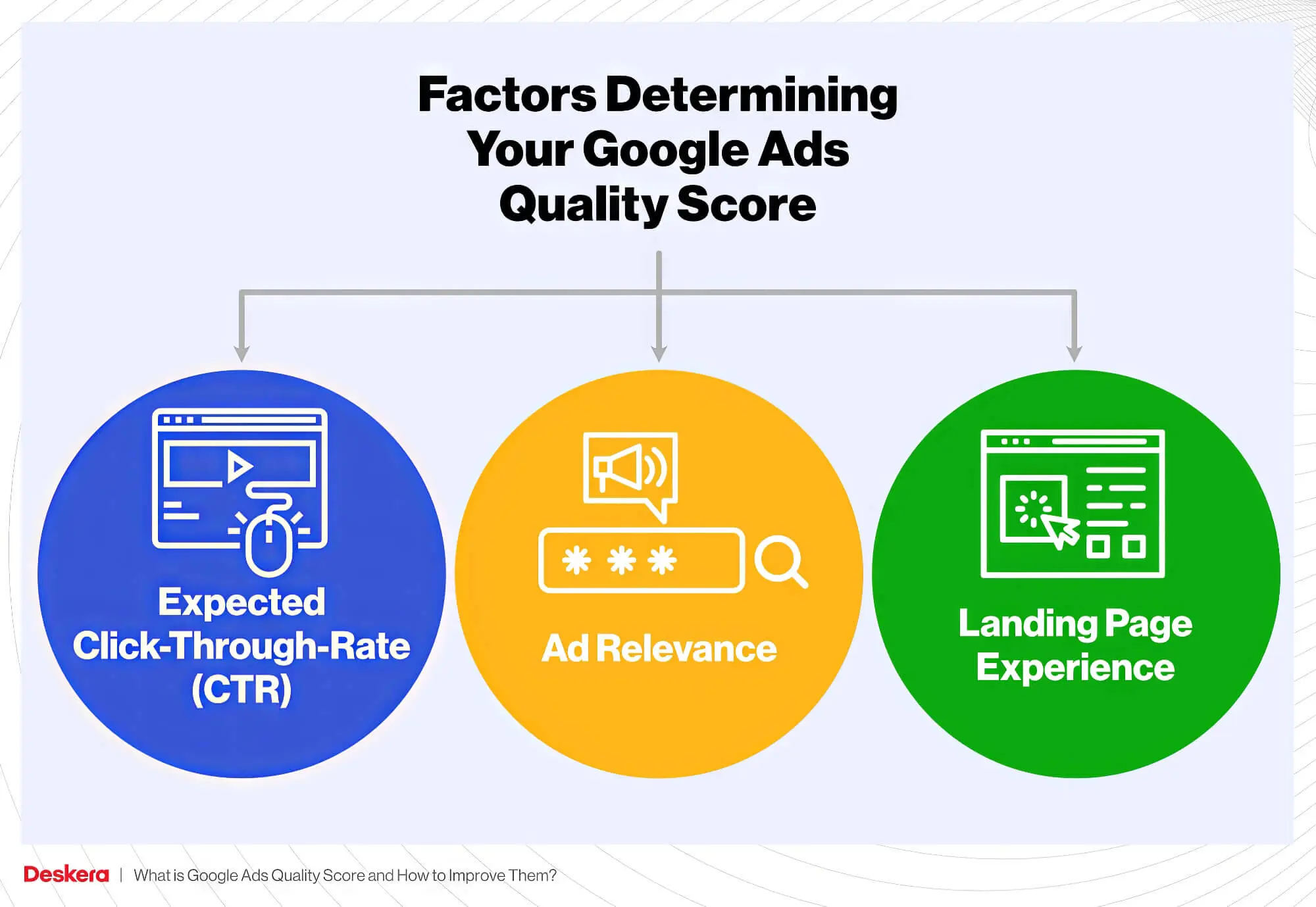
According to Google, ad relevance is one of the three key metrics that determine the quality score of an online advertisement. The other two metrics considered in measuring quality score are landing page experience and expected click-through rate.
An ad’s quality score is a big deal for digital marketers and PPC advertisers. It shows how your ad stacks up against the competition, helping you gauge its effectiveness in the market.
In any case, the ad relevance largely depends on the keywords you have used in the ad copy. If these keywords relate to the searcher’s queries well, the ad relevance will increase, and vice versa. Because of this reason, ad relevance is otherwise known as keyword relevance.
How Is Ad Relevance Measured?
All metrics in Google Ads Quality Score, including ad relevance, are graded in three statuses based on performance. These three grades are:
- Above average
- Average
- Below Average
If the relationship between keyword and ad copy is high, your ad relevance will also be high. On that note, if the relevance has an above-average status, there are no issues with keywords, and your ad performs well compared to other advertisers.
An average status indicates that the relevance is on par with other ad groups put out by competitors. Try to improve the keyword level in this scenario to get it above average.
If your ad group is marked as below-average, it’s lagging behind competitors. You’ll need to make some smart tweaks to boost its relevance and catch up in the competition.
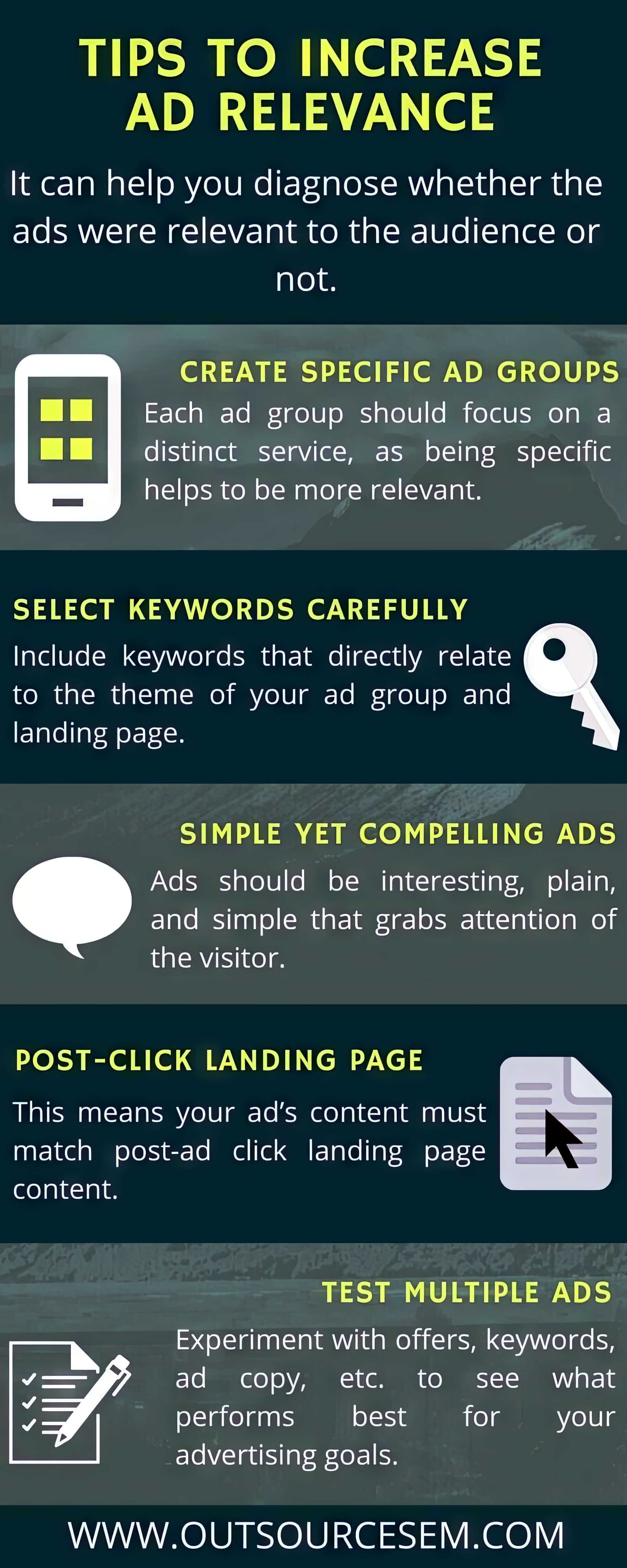
Impact Of Ad Relevance On Campaign Performance
Ad relevance plays a key role in the overall campaign performance. If your ad, particularly compelling ads, is relevant to searchers, it will be displayed on almost every Google search results page. That will naturally improve its visibility and encourage more people to click on the ad.
When considering how ad relevance is important for someone searching, it is crucial to understand how it correlates with quality scores and other similar performance metrics is important. After all, a Google Ads campaign’s success depends on many other components besides ad relevance. The interrelationship between these components determines how well your ads will perform with respect to the competition.
Correlation Of Ad Relevance With Quality Scores And Other Metrics
We have already mentioned that ad relevance is one of the core components of the Google Quality Score. This score determines the overall ad quality, directly impacting your ads’ performance. A higher quality score means you have a highly relevant ad that can perform well and vice versa.
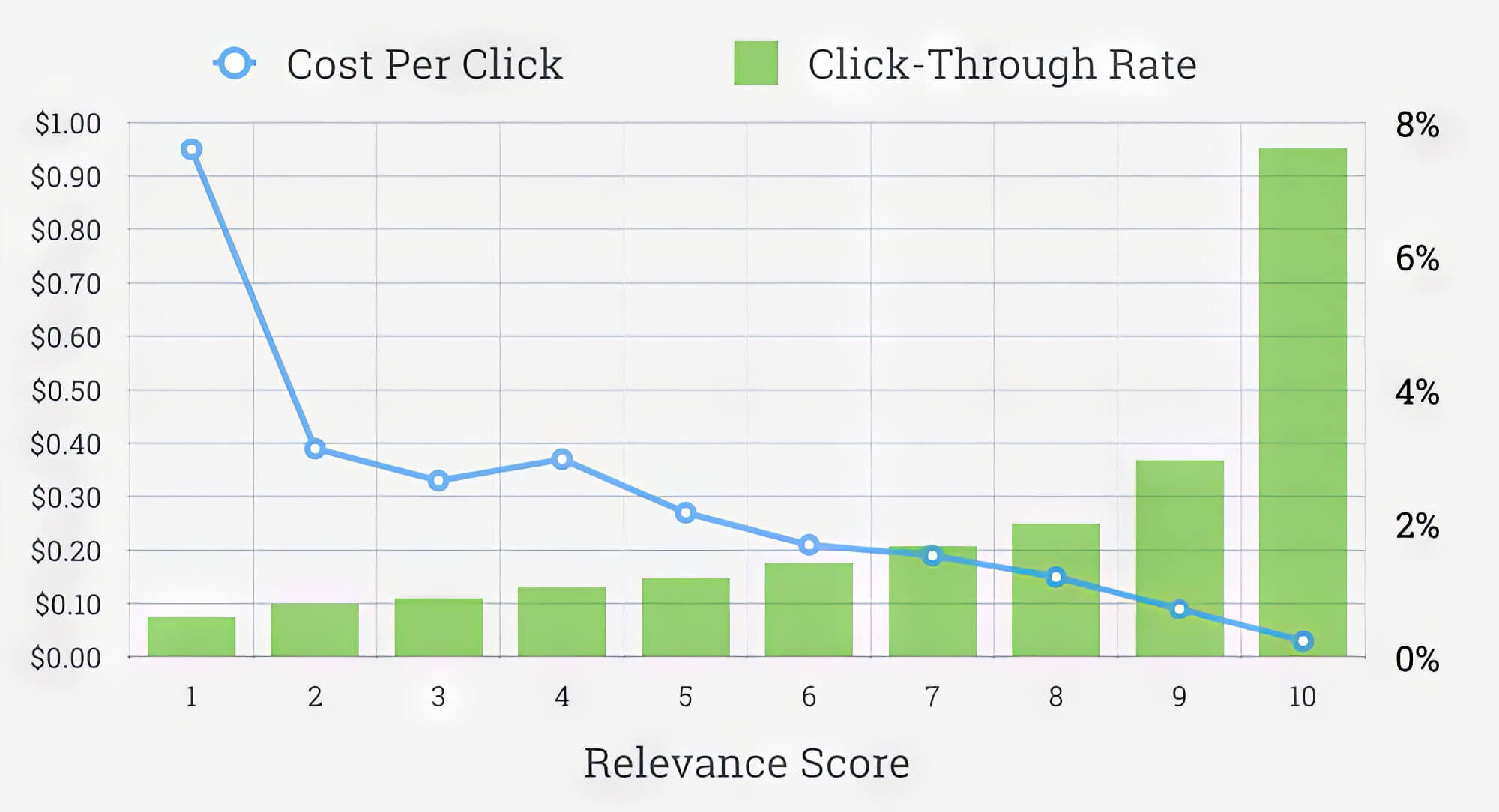
In this regard, the ad relevance works in tandem with the other two components — landing page experience and expected CTR — to improve the quality score of an advertisement. For instance, if the expected CTR, ad relevance, and landing page experience are all graded above average, your overall quality score will also be above average.
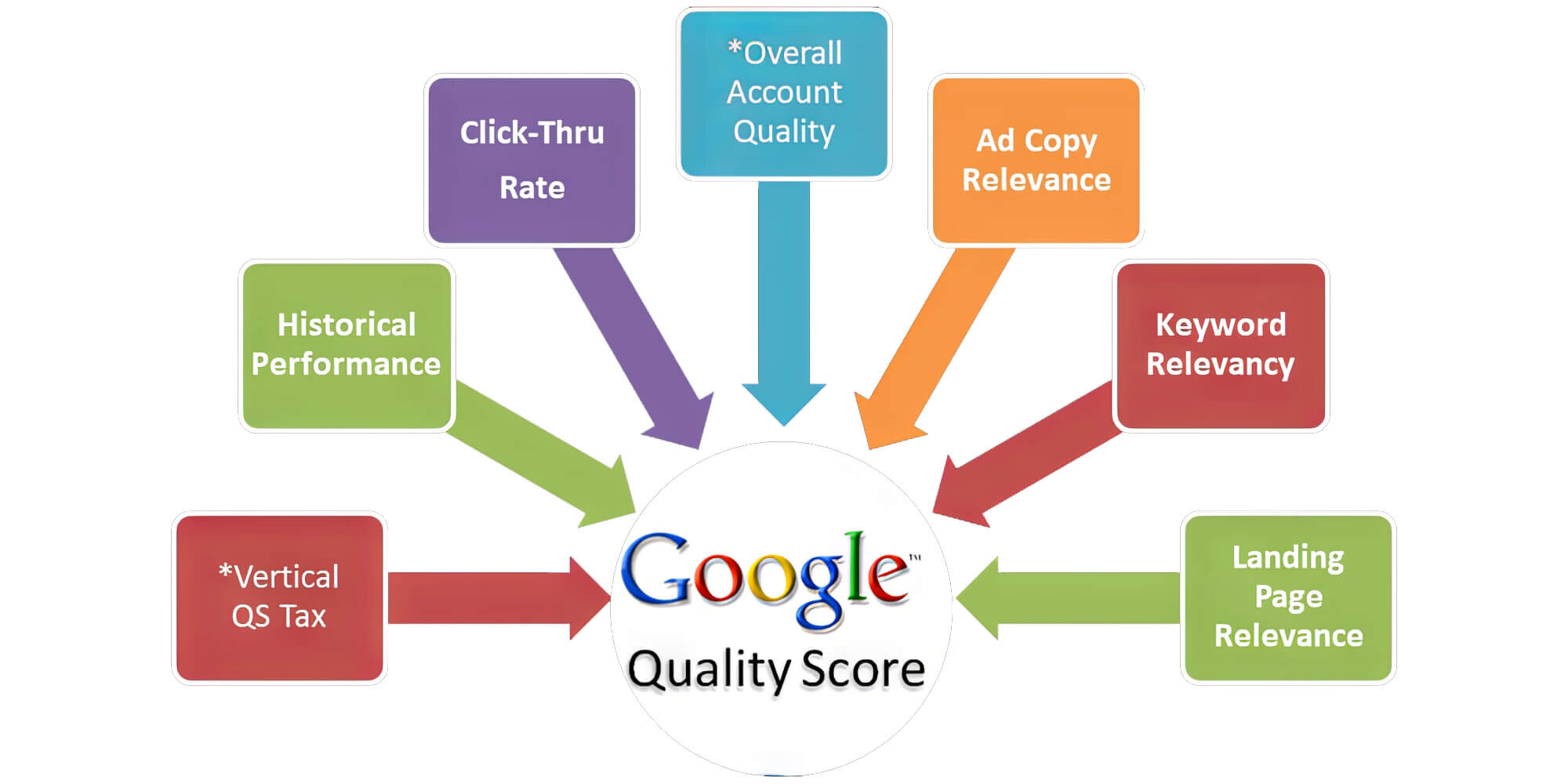
It is important to note that the quality score influences the ad rank on search engine results pages. If your ad has a low-quality score, its ad position will go down, placing it below other ads with higher-quality scores. On the flip side, if the ad has a very high-quality score, it will be placed near the top of the search results.
If the ad is placed above all the others, more people will be able to see it, improving its click-through rate. It will also improve the cost-per-click (CPC) metric, which is the cost per click you must pay for each ad. Thus, it will give you a greater return on investments (ROI), which is a goal that every business owner strives to achieve.
In summary, boosting ad relevance increases your quality score, which helps elevate ad rank. This leads to better CTR, lowers CPC, and ultimately improves your ROI, making your campaign more successful.
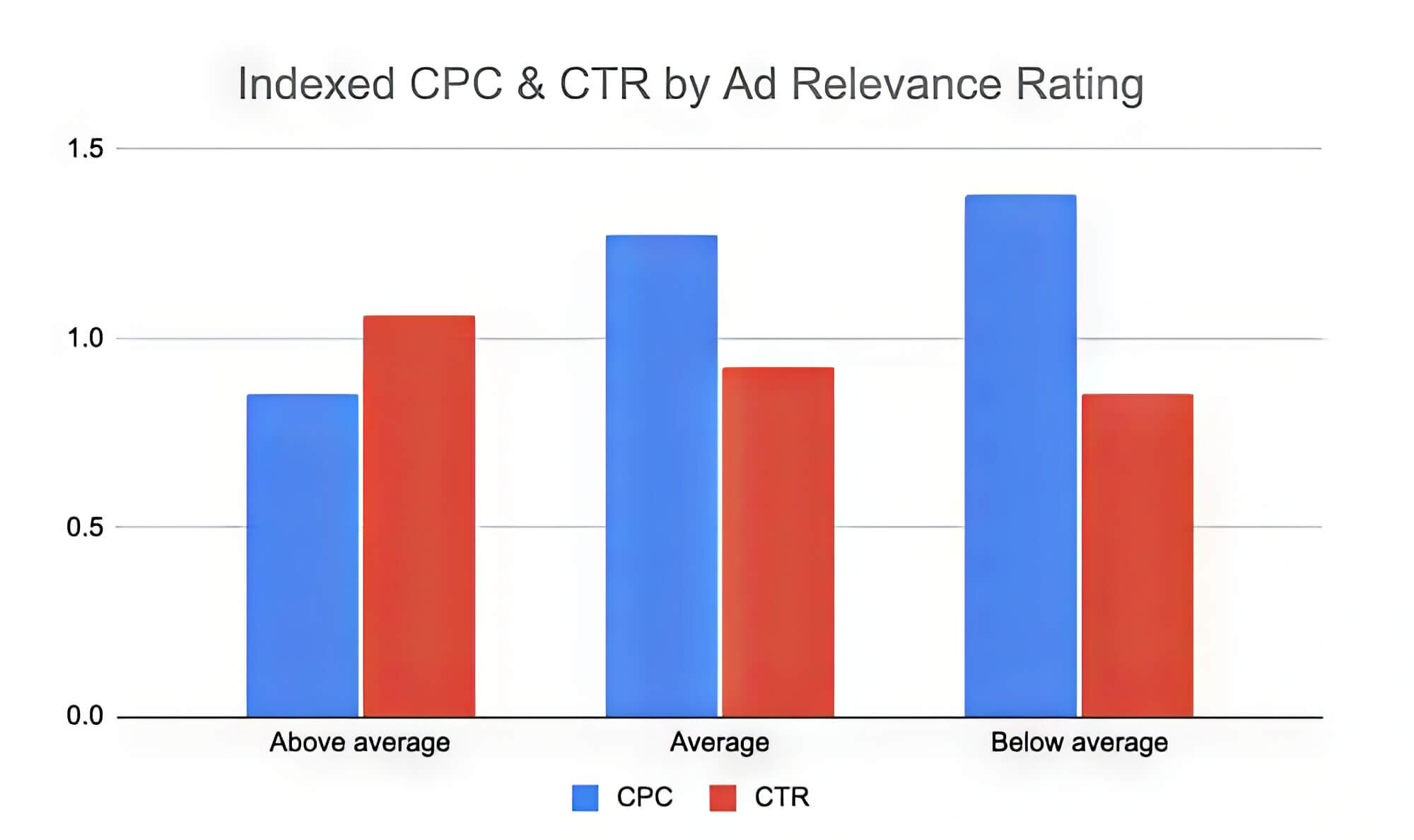
How To Improve Ad Relevance
Now that you’re familiar with ad relevance in Google Ads, how do you boost it? This section covers practical strategies to significantly enhance your ad relevance.
1. Pay Attention To Your Keyword Strategy
As we have suggested before, keywords are what make ads relevant. Therefore, when developing your Google Ads campaign, you must pay close attention to the keyword strategy.
You will have to do some research on the different types of keywords and select the ones that fit your ads best. We recommend that you also try out long-tail keywords in your ads. They usually contain several crucial words and phrases that can improve keyword relevance compared to other keywords in a much better way.
Include these keywords in your ad text and headings to connect with searcher intent. Additionally, steer clear of negative keywords in your text, as they can hurt your quality score and ad optimisation.
2. Create Ad Groups That Are Small And Highly Specific
Instead of creating large ad groups, try creating smaller, more specific ad groups. Larger ad groups are difficult to manage and organise and can become generic. That, in turn, will reduce its relevance and quality score.
On the other hand, if you create tightly themed ad groups, you can manage them much better. Besides, you can select and use highly specific keywords in each of these ad groups to further enhance their relevance.
For example, if you have a business that provides financial consulting, you can create a new ad group for each service offered. You can make one ad group for mortgage planning, another ad group for investment planning, another for stock trading and so on. As you can see, each ad group deals with a specific theme that makes it highly relevant to users searching for those specific topics.
3. Improve The Landing Page
Besides keywords, the landing page content affects the relevance of your Google Ads, too. After all, everyone who clicks on the ad ends up on the post ad click landing on these landing pages.
In addition, you shouldn’t forget that the landing page experience is one of the metrics determining ad quality score. That is why you should optimise them for the best possible user experience.
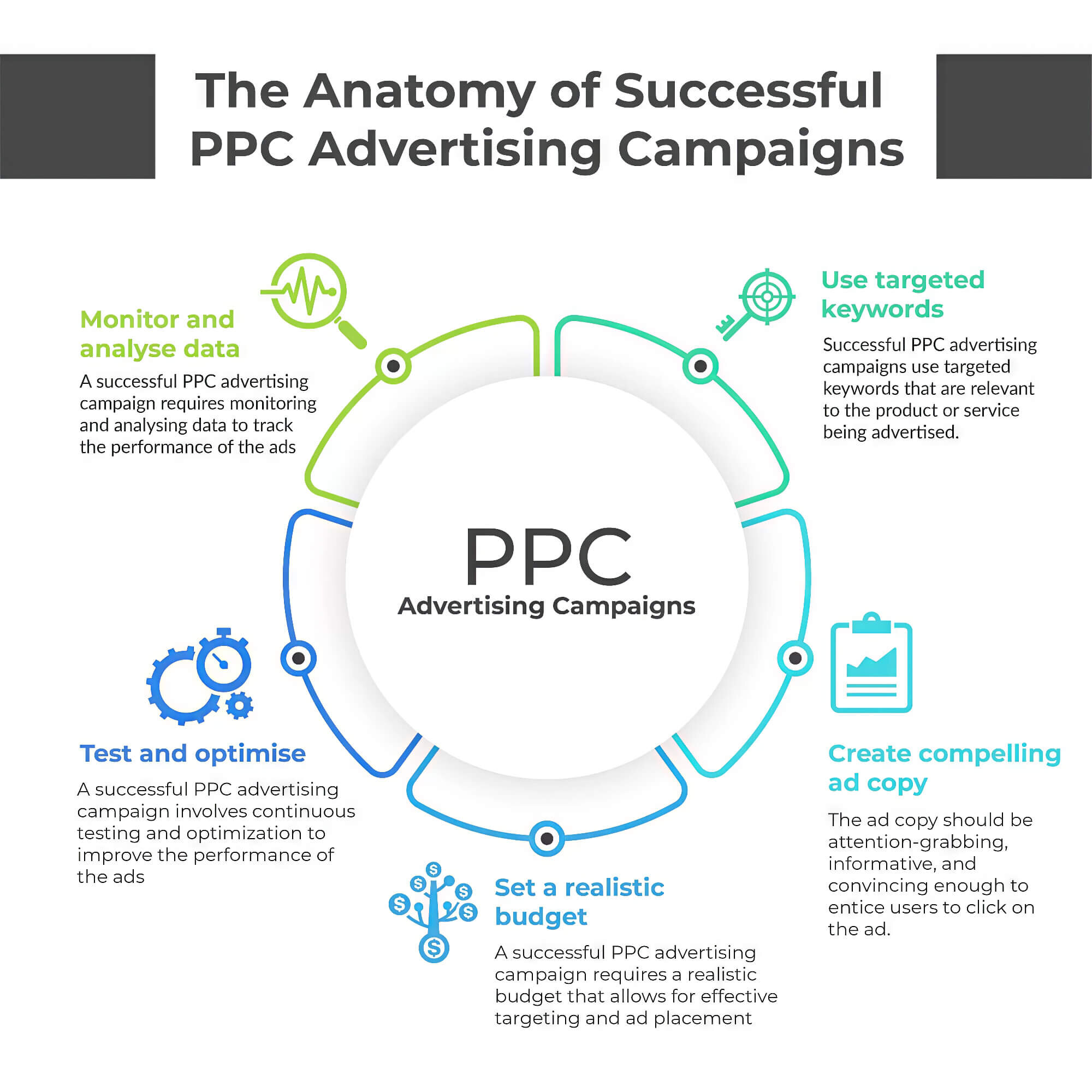
A relevant landing page post-ad-click should not only be visually appealing but should also be rich in content. Highlight your product or service using meaningful images, videos and graphics on the landing page for the user to check out.
Likewise, the text content should be organised and useful, containing all the information the user seeks. If you can maintain the landing page relevance, you can improve customer engagement and conversion rates.
4. Create A Compelling Ad Copy
When developing the ad copy, keep it short and compelling. Try to include the most crucial keywords in the ad headline and description. Furthermore, make sure that the text is relevant and useful so that it can address the user’s search queries effectively.
5. Perform Extensive Ad Testing
Before publishing, create automatically rotating ads and conduct extensive ad testing on each of them to determine the best possible ad copy.
You can perform A/B testing on the ad copies using your Google Ads account to determine which elements have the highest relevance. Then, integrate those elements in the final copy to create a highly relevant ad with a high-quality score.
Measuring And Monitoring Ad Relevance
To keep your ads relevant in the long run and ensure their success, you must constantly monitor and improve them. Luckily, Google provides suitable tools to collect and analyse relevant performance data.
From the main menu, the Google Ads dashboard allows you to analyse your ads' quality score and relevance whenever you want. It will identify any drawbacks in your existing campaign so that you can make the necessary changes to maintain the ad's relevance.
Managing ad relevance alongside other quality score factors requires ongoing attention and expertise. Our Google Ads management services continuously monitor ad relevance, optimize keyword strategies, and test ad variations to maintain above-average quality scores across your campaigns.
That's everything you need to know!
Now that you know what makes ad relevance important, you can use it to increase the efficiency of your company's digital marketing campaign without problems.
Creating a relevant ad copy is relatively easy, and you can find all the required tools and resources in your Google Ads accounts. Still, if you are not particularly sure about it, don't be afraid to seek help.
A qualified marketing expert should be able to guide you on the quest to make your ads more relevant. They can help you develop appealing ad copies and create interesting web pages to attract more users.
These individuals can even advise you on which metrics to prioritise during the analysis stage so that your ads have the maximum impact.

